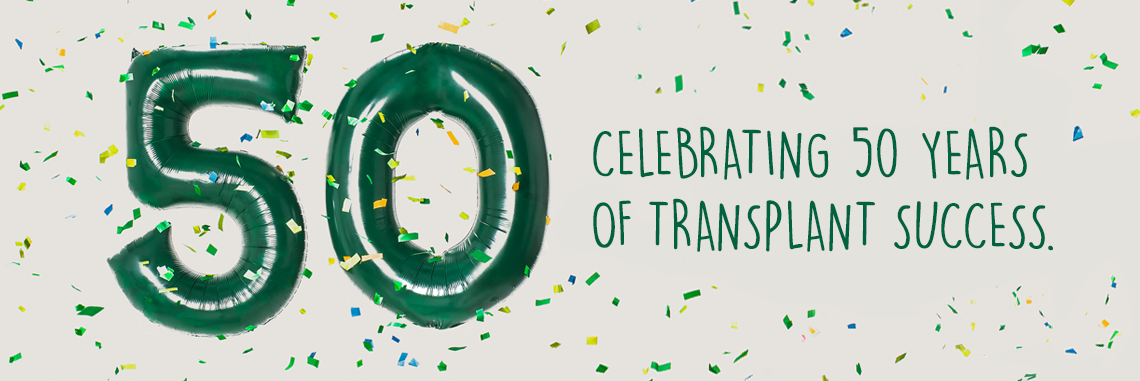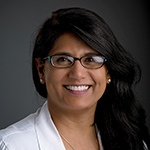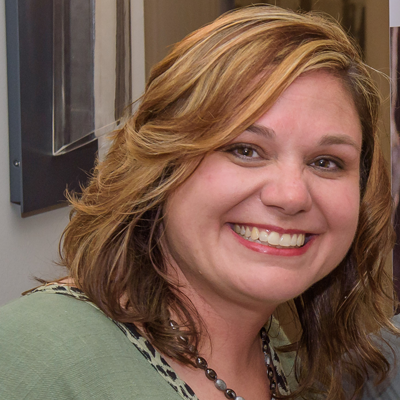
The Division of Nephrology, UAB, offers a one-year fellowship position yearly to applicants who are interested in training in solid organ transplantation.
The completion of at least 2 years of an ACGME approved general nephrology fellowship training program is a prerequisite. The transplant fellowship position is tailored to meet all the United Network of Organ Sharing (UNOS) bylaws as well as the American Society of Transplantation (AST) / American Society of Nephrology (ASN) criteria for certification as a transplant physician.
TRANSPLANT FELLOWSHIP APPLICATION PROCESS
Applicants should submit:
- A completed application form (see link below)
- 3 professional letters of recommendation (which should include a letter from the applicant's nephorology fellowship training program director)
- A personal statement
- A copy of all 3 USMLE STEP scores and/or COMLEX scores if applicable
- ECFMG certificate (if applicable)
- A copy of the applicant's CV
Applications are accepted from graduates of US and foreign medical schools who have successfully completed or who are currently in an ECFMG accredited general nephrology fellowship training program in the United States
Applications are accepted on a rotating basis with interviews scheduled based on availability. Applicants are encouraged to apply as early as possible during their nephrology fellowship, once they are certain of their intent to pursue transplant fellowship. An in-person interview at UAB is required of all prospective candidates. Applicants will be notified if they have been chosen for an in person interview following review of a completed application form and receipt of supporting documents.
Our program supports visa sponsorship for qualified J1 and H1b applicants.
Overview of the transplant nephrology training program.
-
Clinical Rotations
Inpatient rotations: 6 months
Transplant nephrology inpatient service:
The transplant nephrology fellow spends 4 months a year on the service.
The transplant nephrology inpatient service is involved in the care and management of transplant patients with a wide range of medical problems. This includes acute kidney injury secondary to rejection and recurrence of native kidney disease, post-transplant malignancies as well as opportunistic infections. The transplant nephrology ward service is also involved in the care of patients with transplants that have been admitted for other medical problems.
Advanced practice practitioners assist in the care of patients and the role of the transplant nephrology fellow on the service is primarily to function as a junior attending, providing both hands-on care and supervising the care of these patients. During the course of this rotation the transplant fellow may be called upon to perform inpatient transplant biopsies if required.
Transplant nephrology inpatient postoperative and consult service:
The transplant nephrology fellow will spend 2 months a year on this service.
This service is for the management of fresh transplant patients who have received kidney; simultaneous kidney-pancreas and simultaneous liver-kidney transplants. The transplant fellow will serve as the primary consultant to the surgical services to assist in the postoperative care of fresh transplant patients. During the rotation the fellow will provide pre-operative care and evaluation prior to surgery. The learning goals of this rotation will include appreciation of pre-transplant evaluation, management of sensitized patients at high immunologic risk and learning to manage early immunosuppression following surgery and post-operative care.
The fellow will also learn about management of acute complications relating to surgery as well as management of early recurrent glomerular disease and early rejection. There will be opportunities to learn about paired kidney donation, ABO incompatible transplants, HLA-incompatible transplants, transplants in HIV infected patients, use of public health service (PHS) high risk organs, use of Hepatitis C positive organs, use of high kidney donor profile index (KDPI) kidneys, transplant in patients at high immunologic risk (eg.100% cPRA) and other aspects of the kidney transplantation.
Outpatient rotations: 6 months
Transplant nephrology recipient and donor evaluation clinic/renal allograft biopsy rotation:
The transplant nephrology fellow will spend 2 months a year on this service.
The outpatient evaluation clinic is held 4 days a week. During this rotation the transplant nephrology fellow will see prospective transplant recipients and evaluate their suitability for listing. Prospective donors will also be evaluated in this clinic. The transplant fellow will learn how to appropriately assess and consult prospective donors and recipients. The transplant nephrology fellow will be expected to attend the weekly Wednesday afternoon listing conference at which time perspective recipients and donors are discussed prior to proceeding to surgery.
The transplant fellow will also perform ultrasound-guided renal allograft biopsies in the transplant clinic during this rotation every morning prior to attending the evaluation clinic and will be involved in the post biopsy care of the patient.
Transplant nephrology continuity clinic:
Daily outpatient clinics are held for early postoperative and long-term follow-up of transplant patients. Patients in this clinic will include patients in the early postoperative period to patients with stable allografts who are being followed up at half yearly to 1 yearly intervals. The transplant nephrology fellow will learn about the long-term management of renal allograft function and learn to identify and manage both early and late complications that may arise. The transplant fellow will be assigned to a weekly continuity clinic for the duration of their fellowship in addition to a 1 month clinic rotation.
Elective rotations:
The transplant fellow will spend 2-3 months on elective rotations. The transplant nephrology fellow will have a mandatory 2 week rotation on the immune-histocompatibility lab service to appreciate the intricacies of tissue typing, cross-matching and detection of donor specific antibodies. Other options for electives include rotations with the apheresis team, liver transplant service, transplant infectious diseases exposure to renal pathology and pediatric transplant nephrology. During their elective months, the fellow will be expected to work on a clinical research project with an aim to presentation at a national conference.
-
Education and Scholarly Activities
The faculty of the transplant nephrology program will deliver a series of lectures through the year at the noon fellows’ teaching conferences. This will span the educational syllabus required for transplant fellowship training. The UAB transplant program also conducts multidisciplinary transplant journal clubs on a weekly basis starting in the late summer and continuing through the year. Our weekly conference schedule is outlined below.
The transplant nephrology fellow will hold the academic rank of instructor in the school of medicine and will have the opportunity to engage in the teaching of residents and fellows as well as participate in the renal module that is held annually at the school of medicine for medical students.
We encourage the transplant nephrology fellow to undertake a research project with a departmental mentor as part of their fellowship experience.
As part of the transplant fellowship, a stipend and conference leave is provided to the fellow to support attendance at one national conference.
Monday
- Nephrology Research and Training Center Conference, 12:00 p.m.
Tuesday
- Renal Pathology Conference, 12:00 p.m.
Wednesday
- Department of Medicine Grand Rounds, 12:00 p.m.
- Transplant Journal Club, 1:00 p.m.
- Transplant Case Conference, 2:00 p.m.
- ESRD and Donor Listing Conference, 2:00 p.m. - 5:00 p.m.
- Kidney Transplant and KP/Pancreas Transplant QAPI Team Meetings, 5:00 p.m. - 6:30 p.m. (Quarterly)
Thursday
- General Nephrology Fellows Noon Conference, 12:00 p.m.
Friday
- General Nephrology Fellows Noon Conference, 12:00 p.m.
For more information regarding the transplant nephrology fellowship please contact:

Program Director
Song Ong, MD
scong@uabmc.edu

Associate Program Director
Vineeta Kumar, MD
vkumar@uabmc.edu

Program Coordinator II
Jessica Hargrove
jhayes@uabmc.edu
Phone: (205) 934-1801